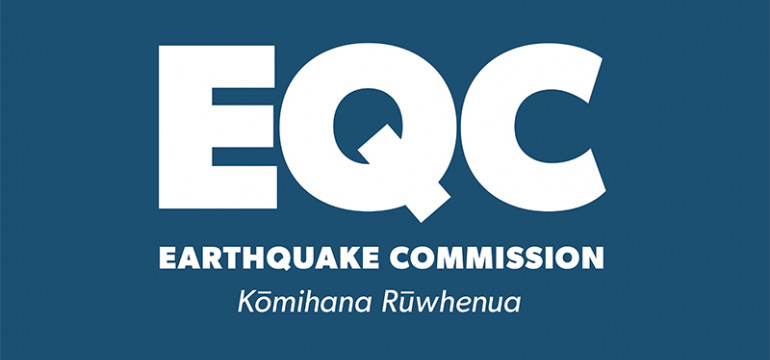EQC welcomes Act changes and gets ready to respond
The Minister Responsible for the Earthquake Commission Hon Dr Megan Woods has announced changes to the Earthquake Commission Act which will be fully in place by July 2020.
The EQC Amendment Bill has been passed in Parliament and builds on the lessons of recent event responses including the Canterbury earthquakes. There are four key changes to the law:
- An immediate extension of the timeframe for lodging a claim from three months to two years.
- Provide EQC scope to share information as necessary to settle insurance claims;
- Removal of the $20,000 EQCover for contents from July 2019; and
- An increase in the cap on EQC residential building cover to $150,000 from July 2019.
Changes to contents cover and the increase in the residential building cap will be phased-in over 12 months from July 2019 as existing insurance policies are renewed or replaced.
Under the changes, EQC will continue to insure residential buildings and land, although it will no longer provide cover for contents.
The EQC Act has been under review since 2012 as successive governments have considered changes to natural disaster insurance arrangements and the management of risk and recovery in New Zealand.
“The review, and the changes that have been announced, have looked at the lessons, not only from the Canterbury earthquakes but other events since the current Earthquake Commission Act was enacted in 1993,” says Chief Executive, Sid Miller.
“Along with these policy changes, we have also introduced a range of operational and organisation changes since 2017 to improve our claim management processes and customer experience.”
QUESTIONS AND ANSWERS
When will these changes come into effect?
The changes to information sharing and claims lodgement rules will take effect from the day after enactment of the Bill.
The changes to contents cover and the increase in the residential building cap will take effect from 1 July 2019 on existing policies renewal date, substantial midterm adjustment and new policies
Will this affect my existing EQC claim?
Your existing claim will not be affected by the amendments, as we will continue to manage it under the current provisions of the Act, e.g. $100,000 cap still applies to existing claims.
The improved information-sharing provisions will apply to all existing and future claims-related information held by EQC.
How will these changes affect future EQC claims?
The changes broaden how we can apply the Earthquake Commission Act. Once the Bill is enacted, you will have up to two years from when your property incurs natural disaster damage. The residential building cap will increase to $150,000 on each claim from 1 July 2019.
The two year claims lodgement deadline will be available to any claim arising from an event from the day after enactment of the Bill.
We still encourage you to claim as soon as possible because we may decline claims where delays in lodging a claim could make it difficult for EQC to attribute the damage to a natural disaster and to assess the claim.
There will be a 12-month transition period from 1 July 2019 as existing policies renew. The changes will take effect for you on the anniversary date of your existing policy, which is generally the annual renewal date, or if you take out a new policy.
We will continue to work closely with insurers over this transition period to ensure you receive the correct entitlements based on your underlying insurance policy.
The new EQCover will be fully in place for all our claimants from 1 July 2020.
Will EQC continue to insure land?
Yes. The amendments make no change to EQC’s land cover.
What is the information sharing provision and what does this mean for personal information?
The updated provisions contained in the amendments provide scope for us to share information we collect about residential property claims lodged with EQC. However, this does not mean that we share your personal information such as your contact or financial details.
For example, if private insurers act as EQC’s agents to settle claims, as they have done for the Kaikōura earthquake, we will be able to share previous claim information on the property. Another example is that we can provide claim information to a prospective buyer of a house that we have previously repaired.
In regard to personal information, we are still bound by the provisions and protections under the Privacy Act. The Office of the Privacy Commissioner has been closely consulted in the development of the Bill and the information sharing provisions reflect the advice received from the Office.
What does ‘property information’ mean?
The amendment defines property-related information as information about natural disaster damage to a residential property (dwelling and land) and any claims made under the Earthquake Commission Act.
It also covers information about the assessed cost of replacing or reinstating damaged property, what repair work has been carried out and settlement amounts.
Who can request property information?
Anyone can make a request for information about claims lodged with us, including previous claims. All information will be provided in accordance with the Privacy and Official Information Acts.
Before the changes, homeowners and prospective buyers couldn’t find out what EQC claims there had been on a property they owned or were looking to buy, unless there was a deed of assignment from the former owner.
*This article was updated on 18 February 2019 for additional clarity
